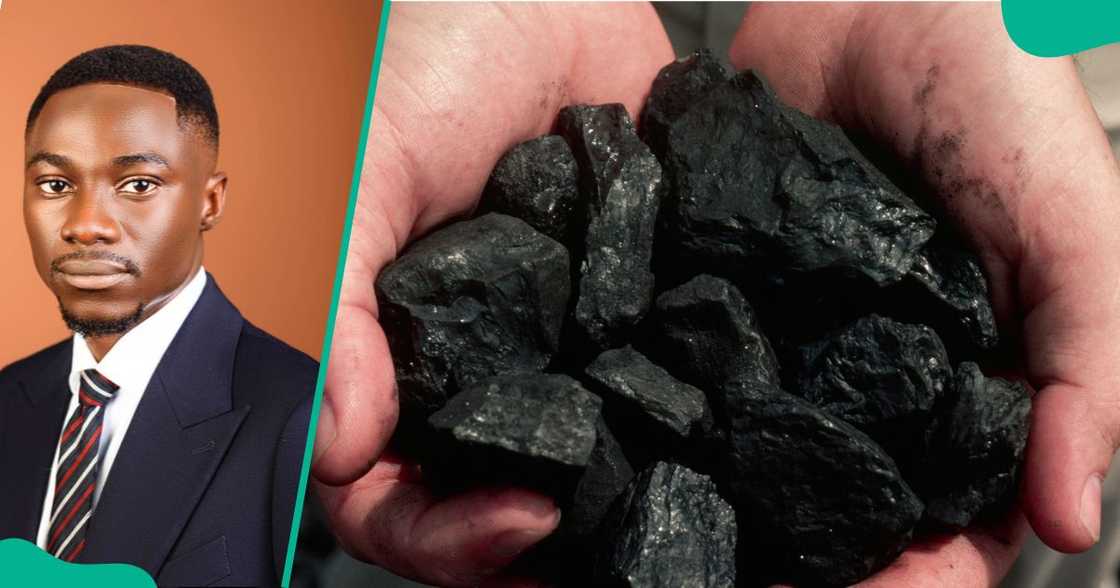Nigeria’s Charcoal Exports: How Poor Regulation is Costing Billions in Lost Value
Ebenezer Akarah, the CEO/Founder, Bricks to Crib Group of Companies, disclosed the several opportunities Nigeria is missing by ignoring its potential in the charcoal industry.
Charcoal may seem like a small player in Nigeria’s economy, but it holds the potential to become a billion-dollar revenue stream if only the system worked. The recent clarification by the National Charcoal Producers, Dealers, and Exporters Association of Nigeria (NACPDEAN) shows that charcoal exports are not banned.

Source: Facebook
They are legal, provided exporters follow the rules. Yet confusion persists, exposing Nigeria’s broader governance weakness: policies that exist on paper but are poorly communicated and weakly enforced.
This regulatory fog keeps the sector disorganised, discourages investment, and leaks value that should be flowing into Nigeria’s economy. Instead of fueling growth, unclear rules stifle opportunity.
Namibia’s example vs Nigeria’s reality
Namibia, with a much smaller economy than Nigeria, has built a structured, profitable charcoal industry.
Through transparent licensing, strong monitoring, and sustainability certification, producers there can plan long-term, investors trust the system, and government revenues are steady.
In contrast, Nigeria remains stuck in confusion. Although regulations exist, weak communication and inconsistent enforcement mean producers and exporters operate in the shadows.
The result? Missed opportunities for jobs, foreign exchange, and sustainable forest management.
The cost of confusion
If the law allows exports, why is Nigeria not seeing growth, confidence, or foreign inflows? The answer is simple: unclear communication. Without clarity, Nigeria risks losing a valuable non-oil revenue stream at the very time diversification has become a survival strategy.
To illustrate, think of a small Lagos bakery owner whose Instagram sales collapsed when her account was restricted.
She later discovered she had unknowingly violated an obscure copyright rule. By then, she had lost 40% of her revenue. That is Nigeria’s forest economy in miniature—crippled not by lack of demand, but by silent, unclear rules.
Global comparison: Namibia, Kenya, and Nigeria
Nigeria’s situation looks worse when compared with its peers. Namibia exported 270,000 tonnes of certified charcoal worth N$1.3 billion in 2023. Kenya sells at $770 per tonne through community forestry and certification. Meanwhile, Nigeria managed just 443 tonnes valued at $119,470—with no standard pricing, oversight, or certification.
The UAE still accepts Nigerian charcoal, offering a rare diplomatic opening. But unlike Namibia and Kenya, which send clean, certified consignments, Nigeria’s exports are often uncertified and undervalued, leaving foreign distributors to profit while Nigeria loses.
Fixing the broken chain
NACPDEAN has been clear: since January 2023, charcoal exports require approvals from the Ministries of Environment and Finance, duty payments, and afforestation commitments.
The problem is not the absence of rules, but poor communication and weak enforcement.
To unlock the sector’s potential, Nigeria needs a three-pronged reform strategy:
Clear and collaborative regulation was developed with producers, community leaders, and environmental experts.
Technological enforcement through digital permits, traceability, and community forest management.
Export certification aligned with international sustainability standards to secure premium markets.
With global benchmarks, sustainable practices, and youth and women trained in low-emission production, Nigeria could unlock $2–3 billion annually from its forest economy.
What's the way forward?
The lesson is clear: regulated supply earns higher prices and credibility. Nigeria already has the production scale; what it lacks is enforcement and vision.

Source: Getty Images
The forest is paying. It’s time for Nigeria to collect. With clarity, transparency, and fair management, charcoal can shift from a smouldering potential to a vibrant, sustainable revenue source for the nation.
Why charcoal is not on Nigeria’s economic map, CEO explains
Legit.ng previously reported that when the federal government announced at the 2025 Forest Economy Summit its plan to unlock $2 billion from Nigeria’s forest economy, it sounded like real progress.
The Vice President, Kashim Shettima, stressed urgency, warning that over 90% of our original forest cover is already gone.
Yet, there’s a contradiction at the heart of this initiative: while advocating a sustainable forest economy, the government is quietly restricting charcoal exports, a forest product with huge export potential.
Source: Legit.ng




